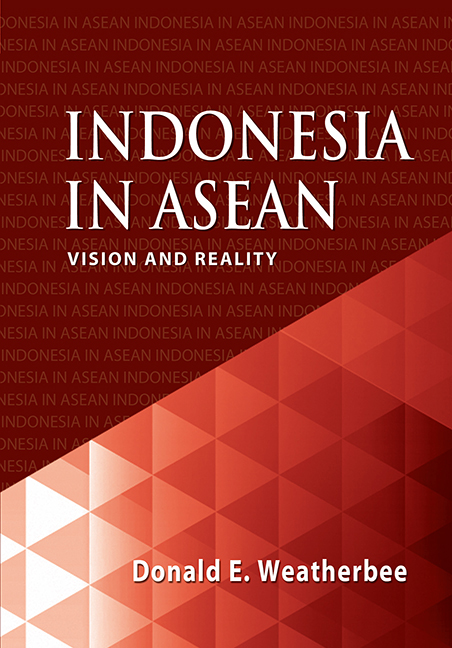Book contents
- Frontmatter
- Contents
- Editorial Note
- Acknowledgements
- About the Author
- Introduction
- I The Visible Indonesia
- II Indonesian Policy Foundations
- III Democracy in Indonesian Foreign Policy
- IV Islam in Indonesian Foreign Policy
- V Indonesia, ASEAN and Regional Political Stability and Security
- Conclusion
- Addendum
- End Notes
- References
IV - Islam in Indonesian Foreign Policy
Published online by Cambridge University Press: 21 October 2015
- Frontmatter
- Contents
- Editorial Note
- Acknowledgements
- About the Author
- Introduction
- I The Visible Indonesia
- II Indonesian Policy Foundations
- III Democracy in Indonesian Foreign Policy
- IV Islam in Indonesian Foreign Policy
- V Indonesia, ASEAN and Regional Political Stability and Security
- Conclusion
- Addendum
- End Notes
- References
Summary
A major element in the Indonesian international image promoted by the Yudhoyono government is the fact that its democratic framework embraces a Sunni Muslim population of more than 215 million. Not only does Indonesia have the world's fourth largest population, making it the world's most populous Muslim country, but also — and very important for its international identity — the world's most populous Muslim democracy. For Indonesia, this is proof that adherence to Islam and political democracy are not mutually exclusive and that democracy can flourish in a Muslim political culture. From this foundation, President Yudhoyono and his government have proposed that Indonesia's democratizing experience can be a model or template for Muslims worldwide. Moreover, Indonesia asserts that as a moderate modernizing Muslim democracy, it can become a bridge between the West and an antagonistic Muslim world, harmonizing, as it were, the clash of civilizations. This would seem to give special value to Indonesia's international relations as an alternative face of Islam (Anwar 2010, p.49).
A bridge, however, is made to be crossed. An exchange has to be made. The same kind of issues that were raised in the discussion of Indonesia's reluctance to proactively operationalize a “democratic” foreign policy have to be addressed when discussing the factor of Islam in Indonesian foreign policy. The basic question is whether in fact the Indonesian experience is transferable to other Muslim countries and what kind of foreign policies and strategies could operationalize it. The Indonesian “bridge” may be a bridge too far.
The Indonesian Model
Certainly there is now little doubt that for Indonesian Muslims their religion is compatible with democracy. Muslim leaders and social groups have been part of the democratization process in which legitimacy is to be measured by good governance, not religion (Barton 2010). Data from the Indonesia Survey Institute (Lembaga Survei Indonesia [LSI]) support this proposition. In a 2006 LSI poll, 82 per cent of the Muslim respondents agreed that democracy was the best political system for the country. The preference for democracy as opposed to political Islam is reflected in parliamentary and presidential elections. The political parties whose platforms were avowedly Islamist won no parliamentary representation and the four so-called moderate Muslim parties have over the years had declining support.
- Type
- Chapter
- Information
- Indonesia in ASEANVision and Reality, pp. 37 - 58Publisher: ISEAS–Yusof Ishak InstitutePrint publication year: 2013

